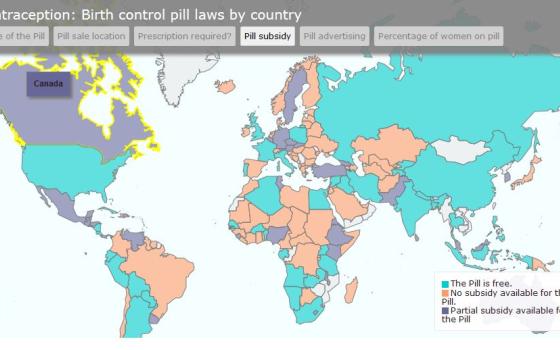Birth control access
Monday, the U.S. Supreme Court ruled that certain companies are not legally obligated to cover certain birth control types for employees if doing so violates the company’s religious beliefs. While American Christians generally support a company’s right to be exemption from contraception coverage on religious grounds (55 percent of Catholics and 51 percent of Protestants agree), the topic has been widely debated, usually in terms of religious rights vs. women’s rights.
In 2009, the Guttmacher Institute – a United States-based reproductive health think tank – published a report analyzing the costs and benefits of increasing access to modern forms of birth control. According the report:
- Worldwide, 818 million women say they would like to avoid or delay pregnancy. Of those 818 million, 25 percent either use no method of birth control or rely on traditional methods such as periodic abstinence.
- If women who wanted to avoid or delay pregnancy had access to birth control methods (including condoms), unintended pregnancies would decrease by 53 million in developing countries, with the vast majority of the decrease happening in low-income countries.
- With increased access to birth control, the number of abortions performed worldwide would decrease by 25 million.
Last year, Slate designed a series of maps highlighting the different contraception and abortion laws in countries across the world. One example is above.

